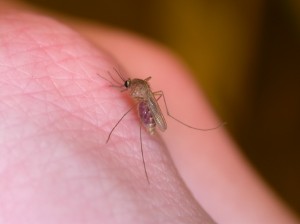
(Photo previously submitted to NIT, courtesy of Lyric Bartholomay.)
DES MOINES – The Iowa Department of Public Health (IDPH) has announced the first Iowa death this year associated with West Nile virus. A middle-age adult (41 to 60 years of age) woman from southwest Iowa died in September. “This death related to West Nile is tragic and reminds us to protect ourselves and our families from mosquitoes,” said IDPH Medical Director, Dr. Patricia Quinlisk. “Until the state’s first hard frost, whether it’s for work or play, being outside means there’s a risk for West Nile virus.”
Iowans should take the following steps to reduce the risk of exposure to West Nile virus:
Use insect repellent with DEET, Picaridin, oil of lemon eucalyptus, or IR3535. Always read the repellent label and consult with a health care provider if you have questions when using these types of products for children. For example, oil of lemon eucalyptus should not be used on children under 3 years of age and DEET should not be used on children less than 2 months of age.
Avoid outdoor activities at dusk and dawn when mosquitoes are most active.
Wear long-sleeved shirts, pants, shoes, and socks outdoors whenever possible.
Eliminate standing water around the home because that’s where mosquitoes lay eggs. Empty water from buckets, cans, pool covers and pet water dishes. Change water in bird baths every three to four days.
In 2017, seven Iowans have been diagnosed with West Nile virus and three additional cases are under investigation. Last year, there were 37 cases confirmed, including one death. For more information on West Nile virus, visit this site.







You do know these insects have to become infected with west nile after feeding off a bird specie of type – hawk/bluejay/owls/eagles any one of the vulture type / meat eaters etc. These insects are not born with the nile disease. Google it – surprised me – reseachers use bluejays more commonly.